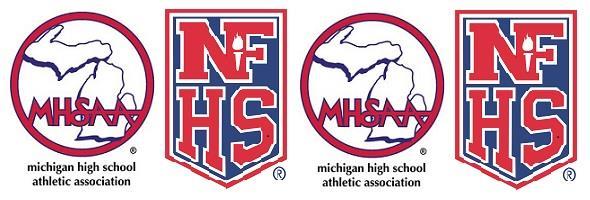
NFHS Voice: Multi-Sport Paves QB's Way
February 10, 2020
By Karissa Niehoff
NFHS Executive Director
On football’s grandest stage earlier this month, its latest star attraction not only delivered another virtuoso performance but demonstrated the best career path to success.
In leading the Kansas City Chiefs to victory in Super Bowl LIV, quarterback Patrick Mahomes brought to an end another tremendous year of football at all levels and became the latest – and perhaps best – example of the benefits of playing multiple sports during high school.
In the week prior to the Super Bowl, Mahomes talked about his ascension to the top of the football world. Despite the opportunity to focus solely on baseball as his father had done, Mahomes rejected sport specialization. Instead, he spoke about how playing multiple sports in high school paved the way for his success.
The top performer on the grandest stage of the sport, Mahomes made it to the top of the football mountain by NOT playing football year-round. Had he chosen to specialize in one sport during his high school days in east Texas, Mahomes might never had made it to NFL since, as he noted in the week prior to the Super Bowl, he was “a baseball player that was playing football.”
Mahomes believes the skills he learned as a shortstop in baseball and as a point guard in basketball helped him more as a quarterback on the football field than if he had chosen to devote his entire energies to football.
His uncanny ability to throw passes from various angles unlike any of today’s perfect-form pocket quarterbacks? He gained those skills on the baseball field. His ability to throw lasers to his intended receivers without looking? He learned those skills on the basketball court at Whitehouse High School in Texas.
His trek to the top of the football world supports our belief that playing multiple sports within the education-based structure – as opposed to a single-sport focus in a non-school program – is the best route to future success.
Mahomes experienced the benefits of playing multiple sports – better leadership and teamwork skills from cross-training, reduced risk of burnout in one sport, a variety of experiences from involvement with different sports and teams, reduced risk of overuse injuries in one sport and exposure to a variety of coaching styles.
Many parents believe that in order for their son or daughter to earn a college scholarship and eventually play at the professional level, they have to specialize in one sport year-round. This pattern has led to the proliferation of non-school programs and coaches, many of which stray from the education-based focus of high school sports.
While there are a few who achieve elite status in a sport, the majority of people who participate do not. We believe the multiple-sport path demonstrated by Mahomes is the best route to attaining athletic success and lifelong enjoyment of sports.
Dr. Karissa L. Niehoff is in her second year as executive director of the National Federation of State High School Associations (NFHS) in Indianapolis, Indiana. She is the first female to head the national leadership organization for high school athletics and performing arts activities and the sixth full-time executive director of the NFHS, which celebrated its 100th year of service during the 2018-19 school year. She previously was executive director of the Connecticut Association of Schools-Connecticut Interscholastic Athletic Conference for seven years.

Become an Official: HS Sports Need You
January 24, 2018
By Bob Gardner, Executive Director of the National Federation of State High School Associations
and Mark Uyl, Assistant Director of the Michigan High School Athletic Association
They don’t make the headlines, their names are not in the box scores and they don’t make the all-star teams. But perhaps the most important individuals in high school sports are the contest officials.
These individuals are so important that, in fact, there would be no organized competitive sports at the high school level without the men and women who officiate these contests every day across the country. Subtract the dedicated men and women who officiate high school sports, and competitive sports would no longer be organized; they would be chaotic.
In some areas of our country, high school officials are retiring faster than new ones are being added. And junior varsity, freshmen and middle school games are being postponed – or even cancelled – because there are not enough men and women to officiate them.
Anyone looking for a unique way to contribute to the local community should consider becoming a registered high school official. For individuals who played sports in high school, officiating is a great way to stay close to the sport after their playing days have ended. Officiating helps people stay in shape, expands their social and professional networks and offers part-time work that is flexible, yet pays. In fact, officiating is a form of community service, but with compensation.
Another benefit of officiating is that individuals become role models so that teenagers in the community can learn the life lessons that high school sports teach. Students learn to respect their opponents and the rules of the game and the importance of practicing good sportsmanship thanks, in part, to those men and women who officiate. And the objectivity and integrity that high school officials display is an example that every young person needs to observe firsthand. In short, communities around the country will be stronger because of the life lessons that high school officials help teach the next generation.
Officiating is a great way to stay connected to sports and to give back to the local high school and community. We need dedicated men and women to become involved so that high school sports can continue to prosper for years to come.
Individuals interested in learning more about becoming a high school official, and even beginning the application process, can do so at www.HighSchoolOfficials.com.

